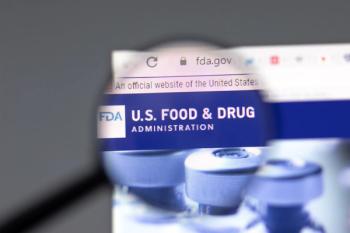
Recent studies reveal that while diabetes technology use rises, glycemic control in type 1 diabetes patients remains low, highlighting significant disparities.

Recent studies reveal that while diabetes technology use rises, glycemic control in type 1 diabetes patients remains low, highlighting significant disparities.

Pharmacies face significant challenges in filling buprenorphine prescriptions for telemedicine patients, impacting opioid use disorder treatment access and patient satisfaction.

Researchers explored the effectiveness of pharmacist-led interventions for improving medication adherence among a group of patients with chronic diseases.

DTC pharmacies offer significant savings on total medication costs for neurological drugs, but out-of-pocket expenses remain high for insured patients.

Despite pharmacists seemingly increasing their distribution of immunization services, vaccine hesitancy and misinformation continue to circulate in various communities.

In the context of the COVID-19 pandemic, researchers investigated how insulin use and glycemic control were associated among patients with type 2 diabetes.

Investigators found that Opill increased access for patients who were uninsured, identified as Black or Latina, had lower education, and lived in the Southern United States.

As continuous glucose monitoring becomes more common, pharmacists are essential in patient education but face barriers of time, training, and reimbursement.

Early planning and strong partnerships enable community pharmacies to manage the surge in vaccines and treatments during influenza, COVID-19, and RSV seasons.

Pharmacists leverage socioeconomic insights to combat health disparities, enhancing access to medications and public health services in underserved communities.

Samantha Picking, PharmD, senior director of immunizations at Walgreens, discusses how pharmacists have emerged as the ideal providers to manage vaccine administration.

Amid multiple methods for protecting children against RSV, researchers explored the strengths, limitations, and future approaches of each.

Cyclobenzaprine HCl sublingual tablets (Tonmya) are the first new FDA-approved therapy for fibromyalgia in over 15 years.

FDA approves Wegovy for treating metabolic dysfunction–associated steatohepatitis, marking a breakthrough in liver health management and patient care.

Pharmacists face numerous challenges daily while striving to provide optimal care for their patients.

At the Total Pharmacy Solutions Summit Summer 2025, John Hill, MBAHCM, and Pooja Babbrah, MBA, from the National Council for Prescription Drug Programs, discuss their organization’s plan for advancing the pharmacy profession.

As pharmacies face mounting challenges from changing reimbursement models, understanding and managing revenue cycles has never been more critical.

Pharmacists can help patients dodge sunburns and soak up summer fun with the best OTC sun care picks.

Pharmacists and dietitians acknowledge that older adults and patients with misconceptions about or poor knowledge of diet should be screened for interventions.

AstraZeneca now offers FluMist Home, allowing eligible patients to receive and self-administer the flu vaccine entirely at home.

Tara Pfund, PharmD, chief strategy officer with Cascadia Pharmacy Group, discusses various ways community pharmacists can expand services and support clinical reimbursement.

Pharmacy closures are reducing access to medications and services, raising concerns about their impact on patient care, especially for Medicare beneficiaries.

Amid increased market concerns, researchers explored retail and independent community pharmacy turnover rates spanning from 2010 to 2023.

The FDA granted priority review for this drug due to the longstanding need for a treatment strategy that could improve upon the standard of care.

Adolescents often are at higher risk of unwanted pregnancy, unsafe abortion, and sexually transmitted infections due to inadequate knowledge of protective practices.

A phase 2 trial found RDX-002 significantly lowered triglycerides and reduced weight regain in patients who had recently stopped GLP-1 therapy.

At the Total Pharmacy Solutions Summit Summer 2025 event, Stephanie Zimmerman, Tom Napolitano, and Luke Gunderson discussed the benefits of Real Value Rx.

Experts discuss how pharmacists can successfully navigate value-based care models, overcome operational barriers, and generate new revenue streams.

Exploring WHO National Immunization Technical Advisory Groups, researchers assessed the global adoption and trends of off-label vaccine use since the COVID-19 pandemic.

Pharmacies play a significant role in influenza vaccination.